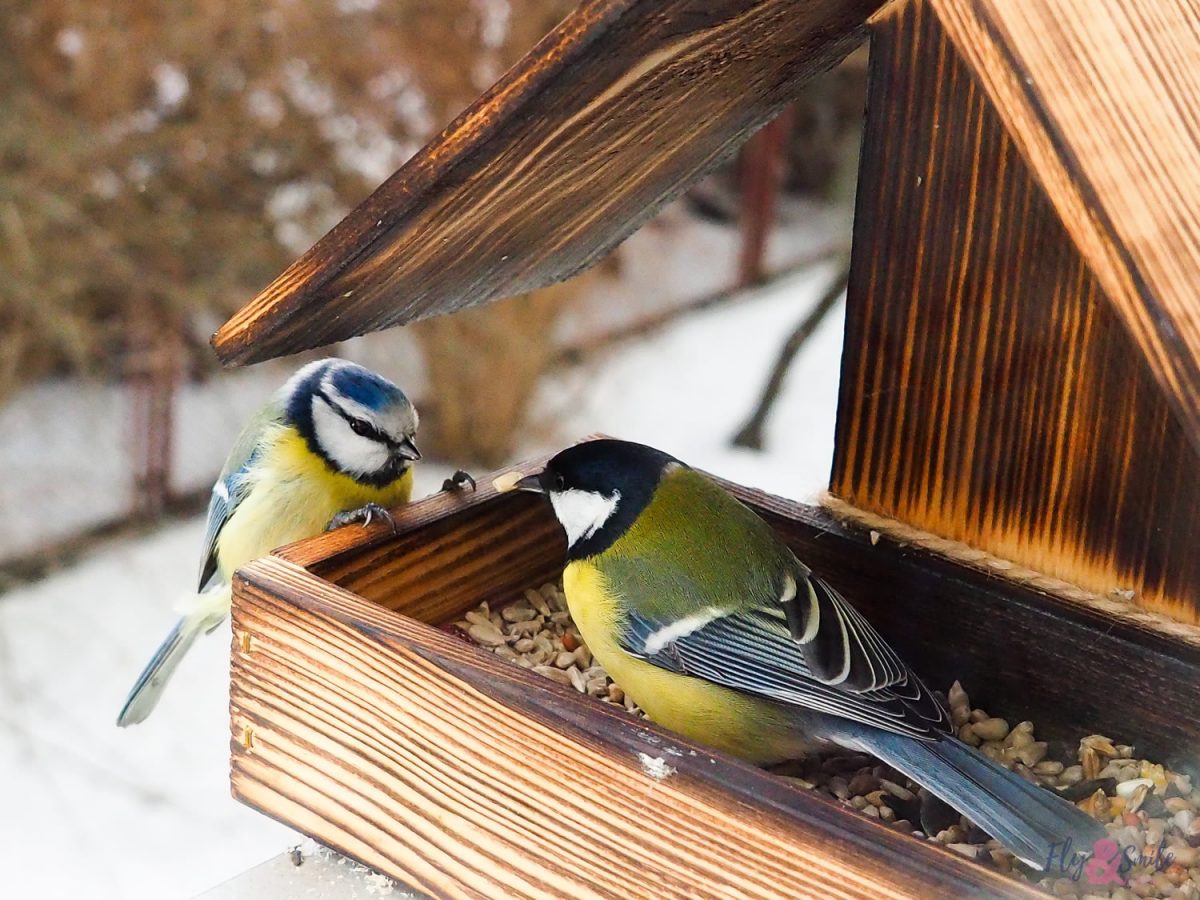What the different birds who visit our gardens like to eat.
We’ve not really had a proper cold snap this winter…yet! You can blame Admin if there’s a big freeze next week. However, our garden birds will always be grateful of extra food that is easy for them to access but what exactly should we feed them? There’s so much choice and so many different feeders available and that’s because each species has specific needs! For instance finches naturally east grass seeds so nyjer seeds are a favourite of theirs. These tiny black grains need a feeder with very small holes or one that only has gaps at it’s base. Robins, blackbirds and thrushes amongst others will love meal and wax worms as insects make up a good portion of their diet. Blue, great, long tailed and coal tits will relish crushed peanuts/sunflower seeds, the high fat content supplements anything they can forage themselves.
Access to clean water is essential not just for drinking but bathing too! If there’s been a frost, make sure the birds can get to a fresh supply.
Feeder hygiene is incredibly important. There are lots of nasty bugs bugs that can accumulate in a build up of old seeds and mould. Salmonella is one but avian flu can also be prevalent. Food gathers and is obviously exposed to the elements, it therefore needs emptying and washing regularly with hot soapy water. Feeders should be well out of the reach of pets, not only to help against predation but also it’s not uncommon to hear of domestic animals/rats and mice tucking into food that’s fallen. So unless you want a vet visit for your pet with an upset stomach or visits from nibbling rodents, keep feeding stations tidy!
As well as bird food you can buy, there are kitchen scraps that are suitable to use in small amounts.
🍎 Apples, pears, sultanas and raisins.
🍞 Bread, stale plain cake and biscuits.
🥔 Cooked potatoes, pasta and rice.
🥥 You can use the above mixed with a little water/unsalted fat to make your own bird cake and put in a coconut half.
Birds shouldn’t be fed heavily salted, high sugar or refined foods. The closest we can replicate their natural diet whilst supplementing it is obviously better for them.
There is a great visual guide at RSPCA England and Wales.

